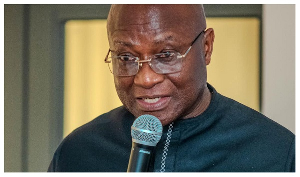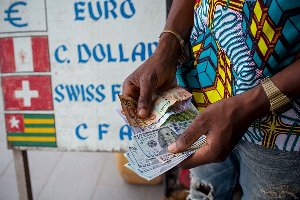Such rare judgments rarely escape the lenses of the society. Since antiquity, judgments by Their Lordships, have attracted diverse thoughts from both the laymen and the learned in our society. I contend that such a measure is healthy for the growth of the rule of law, democracy and the evolvement of our judicial system and constitutional arrangements. To latch this with the current fate of what have been so described as the ‘Muntie Trio’ vis-à-vis the conduct of the Supreme Court of our land in the instant case and the building-pressure on the President to invoke his powers of prerogative of mercy is worth the discourse by all those who seek for the advancement and fidelity of constitutionalism. This article seeks to settle two main issues based on point of law and public morality. Firstly, whether or not the Supreme Court has the power to invoke its inherent jurisdiction to commit and convict persons for Contempt of Court and Secondly, whether or not the President has the power to invoke Article 72 in this instant case of the ‘Muntie Trio’. Whether or not the Supreme Court has the power to invoke its inherent jurisdiction to commit and convict persons for Contempt of Court: The 1992 constitution which is the supreme document of the land clothe the Supreme Court and for that matter any other Superior Court (The Court of Appeal and The High Court or Regional Tribunals) with the exclusive jurisdiction to cite persons who bring the authority of the Court into disrepute for Contempt of Court. Article 126 (2) lays the basis for this and it reads as follows… “The Superior Courts shall be superior courts of record and shall have the power to commit for contempt to themselves and all such powers as were vested in a court of record immediately before the coming into force of this constitution”. Same is grounded in Article 19 (12) for ‘Criminal Contempt’ which reads… “Clause (11) of this article shall not prevent a Superior Court from punishing a person for contempt of itself notwithstanding that the act or omission constituting the contempt is not defined in a written law and the penalty is not so prescribed.” Section 36 of The Courts Act, 1993 also provides that… “The Superior Courts of Judicature shall have the power to commit for contempt to themselves and all such powers as were vested in a court of record immediately before the coming into force of the Constitution in relation to contempt of court”. Also, the Criminal Code of Ghana thus ACT 29, 1960 under Section 10 - Saving for Contempt reads as follows “Nothing in this Code shall affect the power of a Court to punish a person for contempt of Court.” My Comments: The above stated constitutional provisions and Acts which clothe the Supreme Court with the inherent jurisdiction to cite and punish person (s) for Contempt of Court by itself are arbitrary in nature and defy the principles of natural justice which is the highest form of law. My Lords in their judgment in this instant case, noted inter alia that, “...Nevertheless, we are mindful that the summary power of the Court to punish for Contempt of Court that has been preserved by Article 126 (2) of the Constitution is almost arbitrary and such awesome power calls for circumspection in its exercise” . However, they added that… “We have been compelled to act in this instant matter because of its gross nature”. Article 296 (a) (b) emphasizes on how discretionary power should be exercised… (a) “That discretionary power shall be deemed to imply a duty to be fair and candid; (b) The exercise of the discretionary power shall not be arbitrary, capricious or biased either by resentment, prejudice or personal dislike and shall be in accordance with due process of law. And...” In furtherance to this, it must be emphasized that the natural laws of justice procedurally connotes equity and fairness. It is therefore immutable and governs the decisions of all judges or administrative bodies. It is an absurdity of the law for one to be a judge in his own cause. In this instant case, My lords, acted as investigators, prosecutors and judges in their own cause. According to the Supreme Court judgment on the instant case, the attack was directed at the Chief Justice of the Republic of Ghana and the Apex Court of the land. It is instructive to note that Her Ladyship the Chief Justice, Madam Georgina Wood and Justice Gbedegbe recused themselves from the case on the basis that they were specifically named by the ‘Muntie Trio’ while Justice Baffuor- Bonnie also recused himself on the basis that one of the shareholders of the company who was cited for contempt was his brother. The Chief Justice in upholding the principle of nemos judex causa sua (no-one may be a judge in his own cause) with approval quoted that, ‘it is of fundamental importance that justice should not only be done, but should manifestly and undoubtedly be seen to be done”. This move by the eminent jurists signifies the importance of the phenomenon of the law of natural justice within the justice system. The judgment over the rights of others should be free from any kind of bias and must be able to bear an impartial and objective mind to the matter in in controversy, be it, personal or pecuniary bias. The test of bias has been variously described as involving “a real likelihood of bias” and a “reasonable suspicion of bias”. In the immortal words of Lord Denning MR ‘In considering whether there was a real likelihood of bias … the court looks at the impression which would be given to other people … If right-minded persons would think that, in the circumstances, there was a real likelihood of bias. Surmise or conjecture is not enough … The reason is plain enough. Justice must be rooted in confidence: and confidence is destroyed when right-minded people go away thinking; “the judge was biased”. This instant case has propounded an invitation for the whole country to take another look at this very constitutional construction within our statutes. Even though scandalizing the court in itself is a recipe for lowering the authority of the Court in dispensing justice, the gravity of a man sitting on his own case as a judge is more dangerous and affront to the rule of equity, impartiality and fairness that is needed to dispense justice faithfully. There is a need for a spirited advocacy for a change in legislation to quench the mischief that can be created by Judges who cite and punish person(s) for Contempt of Court suo moto. The laws of our land cannot be likened to a traffic light, and must reflect the changing times of the global order. Sowah JSC (as he was then) asserted this stance in Tuffuor v Attorney – General in reference to the Constitution when he emphasized that, "Indeed it is a living organism capable of growth and development, as the body politic of Ghana itself is capable of growth and development”. Even though free speech comes with greater responsibility, Criminal Contempt should not be used by My Lords as a substitute for the repealed Criminal libel law to visit custodial sentence on person (s) who abuse their right to free speech especially the media as an adopted fourth organ of the state. My Lords can do better as the law stands in our statutes, by restricting themselves to fines or a suspended sentences at worse as a punitive measure. Nothing should be done by the coercive power of the state that which will be seen to stifle the right to speak freely without being subjected to any criminal procedure. The arguments canvassed by the then proponents for the repeal of the criminal libel law from our penal code still remains valid in our contemporary times. Whether or not the President has the power to invoke Article 72 in this instant case of the ‘Muntie Trio’: Article 72 of the 1992 Constitution provides as follows: “(1) The President may, acting in consultation with the Council of State- (a) grant to a person convicted of an offence a pardon either free or subject to lawful conditions; or (b) grant to a person a respite, either indefinite or for a specified period, from the execution of punishment imposed on him for an offence; or (c) substitute a less severe form of punishment for a punishment imposed on a person for an offence; or (d) remit the whole or part of a punishment imposed on a person or of a penalty or forfeiture otherwise due to Government on account on any offence.” Also, Section 17 of the Transitional Provision of the 1992 Constitution provides a further reading and states as follows... “The prerogative of mercy of the President under Article 72 of this constitution may be exercised in respect of any criminal offence before the coming into force of this constitution as it may in respect of a criminal offence committed thereafter”. The contention that arises herein is whether the Supreme Court by invoking its inherent jurisdiction to cite and convict person (s) for Criminal Contempt of Court can be deemed as punishing for a ‘Criminal offence’ as compared to Contempt under the Criminal code Section 224 of Act 29, 1960 which states that, “A person commits a misdemeanor who in the presence of a Court commits a contempt of court by an insulting, opprobrious or menacing acts or words”. It must be noted that there are two types of Contempt of Court. They are the Civil Contempt of Court and Criminal Contempt of Court. The Black Law Dictionary, 9th edition defines Criminal Contempt as “An act that obstructs justice or attacks the integrity of the court. A criminal contempt proceeding is punitive in nature. The purpose of criminal-contempt proceedings is to punish repeated or aggravated failure to comply with a court order. All the protections of criminal law and procedure apply, and the commitment must for a definite period”. Also in the US case of Bloom v Illinois it was asserted that "Criminal contempt is a crime in the ordinary sense; it is a violation of the law, a public wrong which is punishable by fine or imprisonment or both." It is trite law that Criminal Contempt of Court under the inherent jurisdiction of the Superior Court is a Quasi – Criminal Offense. In the light of the foregoing, the Supreme Court speaking through Sophia Akufo JSC indicated in their judgment with respect to the instant case that “The attack, which was directed at the Chief Justice of the Republic of Ghana and the Apex Court of the land, amounts to Criminal Contempt of the Judiciary”. Under the Criminal code Act 29, 1960 Section 1 defines ‘offence’ has having the same meaning as Crime. Therefore, whether ‘Crime’ or ‘Offence’ is used, the subject matter remains the same. Crime is defined to “encapsulate any act which is expressly prohibited by a statute in force, or by common law with penal consequences”. The definition of Crime emphasizes that a criminal offence does not really matter whether it is written or unwritten in so far as it has penal consequences or punitive measure which could either be a fine, imprisonment or both including death sentence. Indeed, Article 19 (12) of the 1992 constitution provided above is an exclusion clause and must not be read in isolation. It must be read together with its parent’s clause thus Article 19 (12). Article 14 also states that “Every person shall be entitled to his personal liberty and no person shall be deprived of his personal liberty except in the following case and in accordance with the procedure permitted by law (a) in execution of a sentence or order of a court in respect of a criminal offence of which he has been convicted” or (b) in execution of an order of a court punishing him for contempt of court. Our Criminal jurisprudence recognizes contempt as a Criminal offense as stated in Section 224 of the Criminal code even though Article 19 (12), 14 (b) and the criminal code section 10 as stated above are exclusionary clauses with respect to its procedure in citing person (s) for Criminal Contempt. It is my contention that the distinction envisaged by the framers of our constitution is with respect to the inherent jurisdiction of the court to cite and punish under criminal contempt of court and also the authority of the Attorney General to cite and prosecute person (s) for contempt as defined by Section 224 of the Criminal code is a matter of Procedural law and not a controversial matter of whether or not such offences constitute criminal offence or not. To do that was to engage in a clear absurdity of the law which was never contemplated by the framers of our Constitution. Also, the Constitution does not place any limitations or exclusions with respect to Article 72 of the 1992 constitution. The only operative word therein is the qualification of an ‘offence’ to mean ‘criminal offence’ as expounded in Section 17 of the Transitional Provision. This means that an offense whether written or unwritten which is a criminal contempt punished by the courts through its inherent jurisdiction or through prosecution by the A.G under the Criminal code are both offenses envisaged by Article72. Therefore, it is only Civil Contempt of Court which does not fall under Article 72 of the 1992 Constitution. This approach was advocated by the late Prof. Kludje JSC (as he was then) in the celebrated case of Asare V The Attorney – General where he stated inter alia that, “I agree that we must adopt a purposive construction of the constitutional provisions. That means that we do not construe words in abstract but within the context in which they are used. Language is a tool for expressing the wishes of the speaker, author or the writer. Therefore, regardless of the theoretical classification of the methodology of the construction, the fundamental rule is for the court to misconstrue every enactment with the purpose of effectuating the true intent of the law – maker, in this case the intent of the framers of the 1992 constitution. All other canons of construction have the ultimate purpose of achieving this goal. I do not think the mere recourse to dictionaries of the English Language will resolve the issues which confront us or render any easier the task we are called upon to perform”. Again, In Smith v Hughes, Section 1 of the English Street Offenses Act 1959 provides as follows. “It shall be an offence for a common prostitute to loiter or solicit in a street or public place for the purpose of prostitution”. The appellant solicited men from the balcony by tapping on the balcony railing with some metal object and by hissing to them as they passed in the street beneath her. She was convicted for the contravention of the above section of the Act. In dismissing her appeal, Lord Parker C J stated that “...I approach the matter by considering what the mischief is aimed at by this Act. Everybody knows that this was an Act intended to clean up the streets, to enable people walk along the streets without being molested or solicited by common prostitutes. Viewed that way, it can matter little whether the prostitute is soliciting while in the street or standing in a doorway or balcony, or at a window…in each case her solicitation is projected to and address somebody walking in the street. For my part, I am content to base my decision on that ground and that ground alone”. Let me also add that, if the framers of our constitution had wanted to place any limitations or exclusions to Article 72 they would have done so, as it is, in the case of Section 34 of the PRISONS SERVICE DECREE, 1972 (NRCD 46) which states that, “Remission for Good Conduct (1) Subject to subsection (3), a prisoner serving a sentence of six weeks or more may by steady industry and good conduct earn a remission not exceeding one-third of his sentence. (2) All or any part of the remission so earned may be forfeited in accordance with regulations for failure by the prisoner to maintain steady industry or good conduct. (3) This section shall not apply in the case of a prisoner who is— (a) serving a sentence of imprisonment for life; (b) detained during the pleasure of the National Redemption Council; (c) committed to prison for debt; or It must be noted that Article 72 of the 1992 constitution overrides, or takes precedence over, any Act that seeks to be inconsistent with its provisions. It is therefore my submission that the President with the power vested in him under Article 72 can exercise his prerogative of mercy in this instant case of the ‘Muntie Trio’ My Comments: The efficacy of constitutionalism cannot be guaranteed without any form of Checks and Balances amongst the three organs of government. The framers of our constitution envisaged a likelihood of arbitrariness or abuse of power by any of the organs of state and therefore sought to cure such mischief with certain constitutional provisions to provide some balancing and checks amongst these state organs. Even though the President in this instant case reserves the right under this constitution to invoke Article 72, it may not lead to the harmony that is needed between the Judiciary and the Executive to faithfully discharge their duties on behalf of the people of Ghana. The independence of the various organs of state is written in black and white in our constitution, although, they are dependent on each other. In the United States case of Youngstown Sheet & Tube Co v Sawyer (Steel Seizure Case), Justice Jackson noted that, “While the Constitution diffuses power the better to secure liberty, it also contemplates that the practice will integrate the dispersed powers into a workable government. It enjoins upon its branches separateness but interdependence; autonomy but reciprocity.” This point was succinctly posited in the Ghanaian context by the learned Kpegah JSC (as he was then) in his dissenting opinion in Amidu v President Kufuor, “Although power is dispersed among the various organs of government, it should not be at the expense of harmony.” What is legal may not be what is moral and what is moral may not be what is legal. The seeming pressure being mounted on the President must not sway him into throwing eggs on the faces of the Judiciary. Leadership requires that a leader must lead and not follow. Conclusion: This is my opinion!
Opinions of Thursday, 4 August 2016
Columnist: Mohammed, Chief Obosu


















